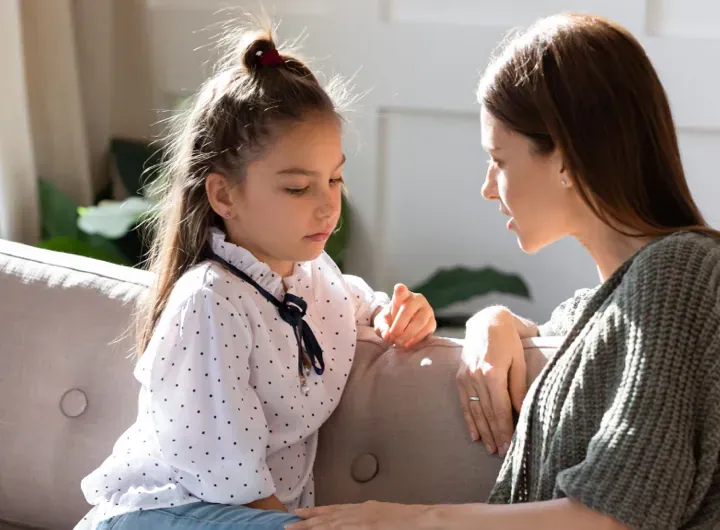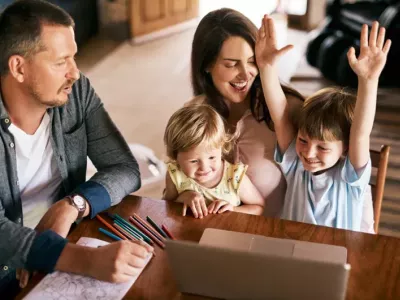When kids look up, what do they see? (Setting an example for emotional coping skills)

Small children can easily become too cold or too hot. It’s because they’re not able to regulate their body temperature very well. It takes time for the body and brain and all the nerves, muscles and systems involved to develop. And in the meantime, parents have to help young children to keep warm or cool. (“Yes, you do need to take a coat!")
Keeping the body at a regular temperature is a physical development issue. It isn’t something that can be learned or practiced. Regulating emotions, however, is something children and teenagers can actively learn to do, with support from you.
LEARNING BY OBSERVATION
Children naturally look up to those around them — literally and metaphorically. Parents are role models for their children, whether or not they realise it. This is how adults teach their children all kinds of things (even when they don’t mean to). When you demonstrate to a child how to brush their teeth, you’re doing that on purpose. But what about when you demonstrate attitudes, beliefs and ways of reacting and responding? Children can learn ways of reacting to strong emotions very easily without adults being aware of it.
Think back over the last week to when you felt annoyed, worried, or stressed. What did your kids observe? It's normal and healthy for children to see that parents feel these emotions every now and then. However, there are different ways this can look. Children benefit most from seeing parents expressing emotions appropriately and dealing with them calmly and constructively. This is something we can work on ourselves. We may not always get it right, but we can always improve.
EMOTIONAL COPING SKILLS TAKE TIME TO DEVELOP
Helping children learn to manage uncomfortable emotions isn’t a one-off conversation. It’s a set of skills we help teach our children in various ways, repeatedly, over a long period of time. When you successfully cope with difficult emotions and your child sees you doing so, it's a way of showing them how to do it themselves. (Learning to accept that children have these emotions, and encouraging them to talk about it, is also important.)
None of us react perfectly to every situation and we can always learn new ways of handling situations. If you’d like to make changes, one thing that really helps is understanding more about how thoughts and feelings are connected.
Strengthen your child's coping skills – learn more about positive parenting.
SET AN EXAMPLE BY LEARNING TO THINK MORE FLEXIBLY
Learning to think in more positive ways can make parenting, and life, a lot more enjoyable. Flexible thinking starts with being aware of what thoughts run through your mind, especially when things aren’t going exactly according to plan.
Imagine how you’d feel if you weren’t included in a friend’s or relative’s online event, without knowing why. You could become quite upset if you believed, or convinced yourself, that you were deliberately left out. But what if you found out later the invitation was sent to the wrong email address?
In other words, it’s to do with the connection between thoughts and feelings. What you believe about why something happened can result in a strong emotional reaction. The key is learning to ask yourself: "What am I telling myself?". Depending on how you interpret a situation, you may overreact and say or do something you regret later. And while children can’t see your thoughts, they do see and hear your actions and words.
It’s not so much what happens but how you interpret it that leads to how you feel. Learning to think flexibly and find other explanations for what has happened can really help.
Once you start to understand this, you can use it and practise it to help you deal with situations calmly. You can begin to teach the concept to your children. You can also try to become more aware of the example you set. Perfection isn’t possible, but positive changes are. It’s just one way to help your children develop good emotional coping skills as they get older.

